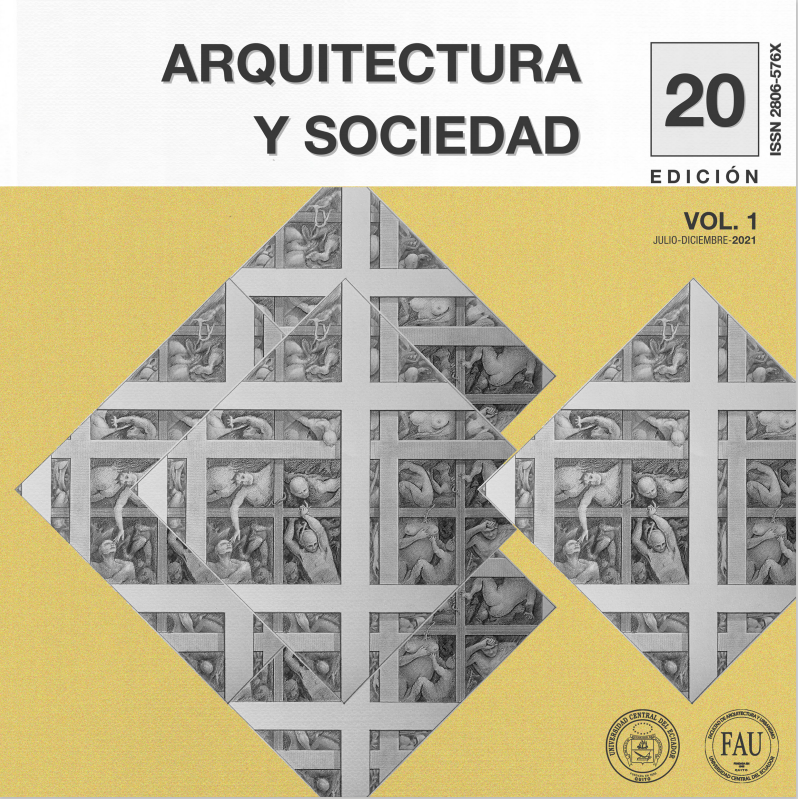DECONSTRUCTING THE CONCEPT OF SMART CITY. A CRITICAL LOOK AT ITS APPLICATION IN LATIN AMERICA
A critical look at its application in Latin America
DOI:
https://doi.org/10.29166/ays.v1i20.3497Keywords:
Smart City, neoliberalism, technology, citizenship, social inequalityAbstract
With the development of information and communication technologies, as well as those technologies related to new energy sources and urban environmental management policies, which have been going on for several years now, it is not surprising that the concept of Smart City has been promoted. There are several new smart cities in the world and they are framed, in general, in high-standard realizations in advanced countries, but it is also applied as an index of measurement of existing cities, both within a country, as a ranking between cities in different countries of the world. However, it is also possible to understand it as a community development initiative in existing localities, as well as a strategy for utopian projects. All these possibilities indicate that it does not have a univocal meaning, that it can be conceived simply as the application of advanced technologies in the management of the city, rather it is a complex concept of ideological contours, which has important derivations and applications for life contemporary urban. This article analyzes the modalities and implications of the concept in the Latin American context, for which the social component has been privileged over other considerations. Through the analysis of a series of documents and experiences produced mainly between the years 2015 and 2021, a critical perspective of the Smart City concept is approached, as a contribution to the debate for those who study the evolution of Latin American cities in the near future.
References
Alvarado, R. A. (2018). Ciudad inteligente y sostenible: hacia un modelo de innovación inclusiva TT - Smart and Sustainable City: Towards an inclusive innovation model. PAAKAT: revista de tecnología y sociedad, 7(13). https://doi.org/10.32870/pk.a7n13.299 Bauer, M., Helbig, D., Mokhov, V., Eltsova, M. (2019) J. Smart Region concept as a solution for sustainable development for region with a rural and urban character Journal of Physics: Conference Series, Volume 1415, International Conference on Innovation Energy 2–3 October 2019, Perm, Russian Federation. Recuperado en: https://iopscience.iop.org/article/10.1088/1742-6596/1415/1/012018.
Berrone, P. y Ricart, J. (2019) “Índice Iese: Cities In Motion”. Universidad De Navarra, España. Cohen, B. (2015). The 3 Generations of Smart Cities. Recuperado en: https://www.fastcompany.com/3047795/the-3-generations-of-smart-cities Cooper, D. (2017). Smart Cities en Chile: Entre la factibilidad tecnológica y las barreras políticas . Debates Latinoamericanos, 31, 10-19.
CORFO (2015). Diagnóstico, levantamiento de brechas e identificación de oportunidades. Programa Estratégico Industrias Inteligentes. Chile. Recuperado en: http://seguimiento.agendadigital.gob.cl.
Espínola, S y Arana, M. (2021). Construcción de redes comunitarias en ciudades inteligentes. Ponencia presentada en Valdivia Urban Lab 2021. Valdivia, Chile. Recuperado en https://www.valdiviaurbanlab.cl.
European Commission. (2012). Smart Cities and Communities. Recuperado en de The European Innovation Partnership on Smart Cities and Communities: http://ec.europa.eu/eip/smartcities
Fundación Beckmann (2020). Informe anual, 2020. México.
Harvey, D. (2014) Ciudades rebeldes. Del derecho de la ciudad a la revolución urbana. Madariaga, Juanmari. Madrid: Akal.238.
Jiménez, A. (2021) Desarrolla territorios inteligentes con Huawei. Ponencia presentada en Valdivia Urban Lab 2021. Valdivia, Chile. Recuperado en https://www.valdiviaurbanlab.cl.
Lara, R. (2017). Lo smart como dispositivo de atractividad territorial. Revisión del caso de Tequila como destino turístico inteligente. Debates Latinoamericanos, 31, 26-40.
Lefebvre, H. (2017). El derecho a la ciudad. Capitan Swing Libros, S. L.
Linares, J. y Vásquez, K. (2018). Ciudades inteligentes: ¿materialización de la sostenibilidad o estrategia económica del modelo neoliberal?. El Ágora USB, 18(2), 479–495. Recuperado en: https://doi.org/10.21500/16578031.3134
Martin, C. (2019) ¿Cómo serán las ciudades del futuro? Stefano Boeri prepara las primeras en Holanda y Cancún. Revista AD. Recuperado en https://www.revistaad.es/arquitectura/articulos/como-seran-ciudades-futuro-stefano-boeri-prepara-primeras-holanda-y-cancun/24228 MINTIC (abril 2020) Propuesta de un Modelo de Medición de Madurez de Ciudades y Territorios Inteligentes para Colombia (MMMCTIC). Colombia. Recuperado en: https://estrategia.gobiernoenlinea.gov.co. MINTIC (octubre 2020) Documento de recomendaciones para el desarrollo de ciudades y territorios inteligentes (DRDCTI). Colombia. Recuperado en: https://estrategia.gobiernoenlinea.gov.co. OECD (2016), Digital Government in Chile: Strengthening the Institutional and Governance Framework, OECD Digital Government Studies, OECD Publishing, Paris. Recuperado en: http://dx.doi.org/10.1787/9789264258013.
Orgaz, C. (2021) Cómo es Songdo, la ciudad inteligente creada desde cero en Corea del Sur Recuperado en BBC News
https://www.bbc.com/mundo/noticias-57030345
Ostrom, E. (1990) Governing the Commons: The Evolution of Institutions for Collective Action. Cambridge University Press.
Roldán, P. (2021). ¿Que implica ser una Smart City en América Latina? Ponencia presentada en Valdivia Urban Lab 2021. Valdivia, Chile. Recuperado en https://www.valdiviaurbanlab.cl/
Saunders, T. y Baeck, P. (2015). Rethinking smart cities from the ground up. NESTA. Recuperado https://media.nesta.org.uk/documents/rethinking_smart_cities_from_the_ground_up_2015.pdf
UN- HABITAT. (2020) World Cities Report 2020. The Value of Sustainable Urbanization Recuperado en: https://unhabitat.org/World%20Cities%20Report%202020.
Westerberg, P. (2021). Ciudades inteligentes para la ciudadanía. Ponencia presentada en Valdivia Urban Lab 2021. Valdivia, Chile. Recuperado en https://www.valdiviaurbanlab.cl/
Downloads
Published
How to Cite
Issue
Section
License

This work is licensed under a Creative Commons Attribution-NonCommercial 4.0 International License.


